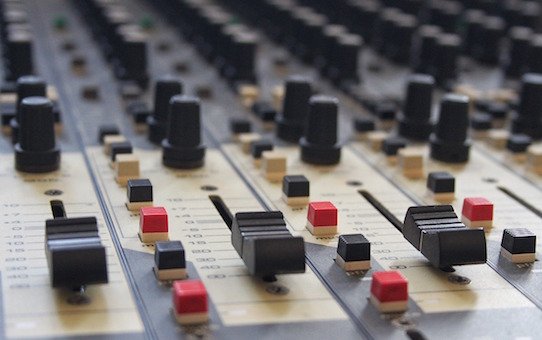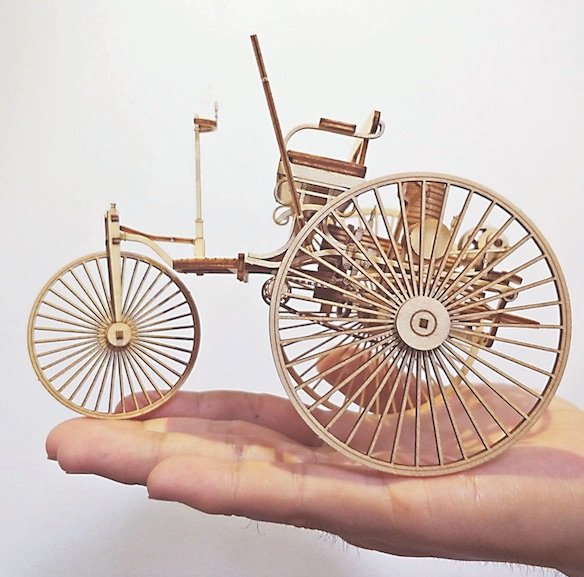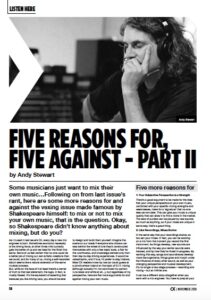News
26 Nov 2018
Listen Here – Five Reasons For, Five Against – Part II

Subscribe to CX E-News
LISTEN HERE
Five Reasons For, Five Against – Part II
by Andy Stewart.
Some musicians just want to mix their own music… Following on from last issue’s rant, here are some more reasons for and against the vexing issue made famous by Shakespeare himself: to mix or not to mix your own music, that is the question. Okay, so Shakespeare didn’t know anything about mixing, but do you?
As I mused in last issue’s CX [Five Reasons For, Five Against – Part I] every day a new mix engineer is born. Sometimes economic necessity is the driving force, at other times mild curiosity gets the better of us and we head for the finish line alone. Some of us feel certain that no-one could do a better job of mixing our own artistic creations than we could, and for many of us, mixing a self-recorded album seems like a natural extension of the same musical process.
But, while on the face of it at least there’s a kernel of truth to that last statement, the logic, in fact, is mostly flawed. It’s the equivalent of asserting that because you like driving cars, you should be able
to design and build them yourself. Imagine the scene on our roads if everyone who drove a car was behind the wheel of one they’d constructed themselves with only a few basic tools, a flair for the unorthodox, and knowledge derived only from their day-to-day driving experiences. It would be catastrophic, and if true, I’d prefer to stay indoors. Most CX readers know by now (or could guess at a pinch) where I stand on the topic of D.I.Y. mixing (although actually I’m not convinced my opinion runs black and white at all…), but regardless of my perspective, here are five more arguments for and against mixing your own music.
Five More Reasons For:
1: Your Subjective Perspective is a Strength
There’s a good argument to be made for the idea that your unique perspective on your own music, combined with your specific mixing strengths and weaknesses, make for a ‘signature’ that no-one else can emulate. This can give your music a unique quality that can allow it to find a niche in the market. The ears of punters can be piqued by new sounds as much as anything, so if your mixes are unique in some way, that’s a good thing.
2: Like Recordings, Mixes Evolve
In the same way that your recordings evolve, so too can your mixes. In fact, you can be working on a mix from the moment you record the first instrument. As things develop, new sounds are influenced by the way your earlier sounds were tracked, and by how they’re mixed in-progress. By working this way, songs and soundtracks develop more like organisms; things grow and morph under the influence of every other sound, as well as your changing perspective and musical development.
It’s no longer a two-stage process – recording and mixing – but an infinite one.
It can be a different story altogether when you work with a mix engineer. You have to prep all your recordings by a certain time, and potentially change DAW platforms to suit the engineer’s working preference (at which time you might also lose a lot of detail from your ‘rough mixes’).
You might even have to ditch all of your (sometimes highly evolved) volume and plug-in automation, bussing and effects groups during this changeover, by which time your music might be barely recognisable. This can seem arduous, a massive backward step… and for what? So that someone can be brought up to speed with what your mixes were like before, only to then change it all anyway and charge you for the privilege? Crazy!
3: You Have To Start Somewhere, Right?
If you’re going to mix your own music, and you’re new to the game, get one thing clear in your head: your mixes won’t be as good as they might otherwise be, but you wouldn’t be the first artist to start down this path alone and penniless.
Lots of very famous musicians started out with sub-par mixes, but their music shone through anyway. Being positive about your art is crucial here, and though your early mixes might not be anything startling, it’s just the beginning of the journey, not the pinnacle. Do your best, get advice where you can – my website, for instance, has dozens of mixing articles, and countless others do too – don’t buy a mountain of gear thinking it’s a legitimate substitute for experience, and take your time.
4: Stretch You Boundaries
Like running, or surfing, or yoga, or song writing, you don’t get good at these sorts of activities by paying someone else to do it for you. Frankly, I’d love it if someone could do 20 minutes stretching for me every morning, but unfortunately the world doesn’t work like that.
If mixing is something you want to explore, and mixing your own stuff is the first step, there’s no substitute for just doing it. Experience is not read, or chatted about, or absorbed through the skin. It’s derived from participation. All these other ingredients help, but only if you’re already at the coalface doing it.
5: Money Means Nothin’ and You Mix For Free
Time is money, as they say. But if you have lots of one – money – and not the other, use that to your advantage. If you have lots of time to devote to mixing, learn as much as you can on the fly and work hard at it. Stay humble about what you learn and realise that the road ahead is long, and breakthroughs are hard won.
If you have a solid work ethic, you’re determined to do a good job and you can remain honest about your own achievements, you may work wonders on your own.
 DIY isn’t always the best option
DIY isn’t always the best option
Five Reasons Against:
1: You Can Be Too Close To It
When you write and record your own music you’re inevitably closer to it than any third party. This
has obvious benefits, but one of its downsides is that you can lose objectivity about sounds and performances. During tracking and overdubbing you inevitably hear everything at wildly differing volumes, which eventually dulls your sensitivity to levels.
You’ll have memories of certain performances that were particularly good or bad, and all this extra background detail associated with the work can skew your perspective when it comes time to mix. Although it might seem innate that knowing a song inside out from a musical standpoint constitutes an asset, in reality it’s often not the case.
Objectivity and fresh ears can work wonders with a mix. Like an end-listener, the mix engineer doesn’t need to know all the detail of who played what and why: what time of night the trombone was recorded, whether the bass player had a broken finger that week, or why the drummer had a falling out with the singer. Who cares… all this sort of thing has no relevance, and if it does then your mix can be compromised by it.
2: If Only Mixing Were Dangerous
As mentioned earlier, if the physical affects of D.I.Y. mixing had the potential to harm others in any physical sense, there would be strict rules around the process. But just because your mixes can’t burn someone’s ears (or maybe they can!), or leave you upside down in a crumpled heap with serious injuries, that doesn’t mean you should go ahead and do it.
I sometimes wish mixing were dangerous, like skydiving or fire fighting, so that more people would stay away from its pitfalls. As it stands, mixing is one of the safest pastimes out there, and that’s why so many get into it. But it’s the physical threat to your music that’s really at stake here!
3: Messy Bedroom Syndrome
If you already know your mixing limitations – maybe you’ve made a hash of things in the past – why are you planning to dive in again? Is it down to money – the financial cost of getting someone else involved? Is it because you don’t know anyone else who can do it, or is it because you’re a little bit bashful about showing your decidedly raw tracking to anyone else?
Often people have several reasons why they wind up mixing their own music.
Half the time choice doesn’t even factor into it. It just happens that way. But sometimes musicians have a morbid fear of getting someone else to listen to their self-recorded tracking in all its unedited, poorly mic’d glory. It’s personal stuff, oftentimes embarrassing, and frankly I’d like a dollar for every time I’ve heard someone apologise in advance for the state of their rough mixes, their dodgy editing or indeed the tracking itself.
No-one likes to reveal their messy bedroom to the world, and the DAW sessions of most songs are the musical equivalent of messy bedrooms.
4: You’re A Poor Judge of Your Own Mixing Talents
Most people – whether they’re musicians, audiophiles, producers and sometimes even engineers – are poor judges of their own mixes because they simply don’t know what a good mix is comprised of. Just because you can appreciate another person’s mix, even to the extent that you can revel in the intricacies of their reverbs and detailed layering, doesn’t mean you know how to do it yourself.
It’s one of the great tricks of mixing, in fact; to make things sound a certain way, even though the nuts and bolts of its processing are hidden from the listener. So learning by listening only is like learning to become a magician by going to magic shows. You could go to 100 and still be none the wiser.
5: Free Help Is Out There
The main reason people mix their own music is nearly always down to money. But if you’re penniless does that mean you need to do it yourself? If you don’t have any money to hire someone to mix your music, and you can’t borrow it, crowd-fund it or earn it, then an alternative might be finding others out there that are keen to hone their mixing skills on your music.
Free help is free help, sure, but collaborating with others in this way can be inspiring stuff, and the results might be far superior to anything you can do alone. You can’t buy experience, not for any amount of money, but you can employ it. Failing that, find someone who might share a passion for your art, and who knows, they might have lots of free time too…
Andy Stewart owns and operates The Mill on Victoria’s Bass Coast. He’s a highly credentialed producer/engineer who’s seen it all in studios for over three decades. He’s happy to respond to any pleas for recording or mixing help… contact him at: andy@themill.net.au
From the November 2018 edition of CX Magazine. CX Magazine is Australia and New Zealand’s only publication dedicated to entertainment technology news and issues – available in print and online. Read all editions for free or search our archive www.cxnetwork.com.au
© CX Media
Read Part I:
Five Reasons For, Five Against – Part I (CX Magazine, Oct 2018)
Subscribe
Published monthly since 1991, our famous AV industry magazine is free for download or pay for print. Subscribers also receive CX News, our free weekly email with the latest industry news and jobs.






